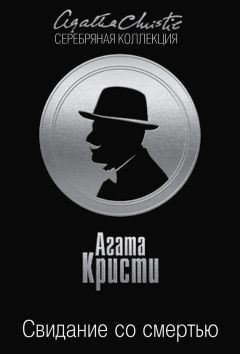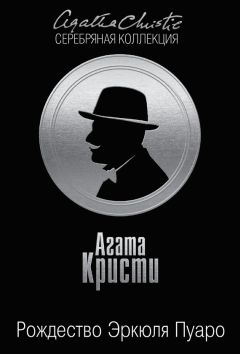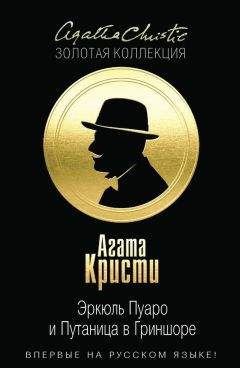Arthur Conan Doyle - Английский язык с Шерлоком Холмсом. Собака Баскервилей
"I presume nothing (я не допускаю ничего)."
"Well, then, why this hound should be loose to-night (так вот, почему эту собаку отвязали сегодня вечером; loose — свободный; спущенный с цепи). I suppose that it does not always run loose upon the moor (полагаю, она не всегда свободно бегает по болотам). Stapleton would not let it go (Стэплтон не выпустил бы ее; to let go — выпускать, освобождать) unless he had reason to think (если бы не имел оснований думать) that Sir Henry would be there (что сэр Генри будет здесь)."
"My difficulty is the more formidable of the two (моя загадка: «трудность» сложнее «из двух»; formidable — вызывающий опасения; труднопреодолимый), for I think that we shall very shortly get an explanation of yours (поскольку, я полагаю, на вашу мы скоро получим ответ: «объяснение»), while mine may remain for ever a mystery (тогда как моя навсегда может остаться тайной). The question now is (вопрос сейчас в том), what shall we do with this poor wretch's body (что нам делать с телом этого бедняги; poor wretch — бедняга)? We cannot leave it here to the foxes and the ravens (мы не можем оставить его здесь для лисиц и воронов)."
"I suggest that we put it in one of the huts (предлагаю положить его в одну из хижин) until we can communicate with the police (пока мы не свяжемся с полицией)."
"Exactly (совершенно верно = вполне с вами согласен). I have no doubt that you and I could carry it so far (сомневаюсь, что мы с вами смогли бы нести его так далеко). Halloa, Watson, what's this (ба, Ватсон, что это)? It's the man himself (а вот и он сам), by all that's wonderful and audacious (клянусь небом, это поразительно и дерзко; all — весь, все; мир, вселенная; audacious — бесстрашный; нахальный, дерзкий)! Not a word to show your suspicions (ни /единым/ словом не выказывайте своих подозрений) — not a word, or my plans crumble to the ground (или мои планы рассыплются в прах; to crumble — раскрошить; сыпаться; ground — земля).
animal [ˈænɪm(ǝ)l], wonderful [ˈwʌndǝf(ǝ)l], audacious [ɔ:ˈdeɪʃ(ǝ)s]
"To hear a hound upon the moor would not work a hard man like this convict into such a paroxysm of terror that he would risk recapture by screaming wildly for help. By his cries he must have run a long way after he knew the animal was on his track. How did he know?"
"A greater mystery to me is why this hound, presuming that all our conjectures are correct ——"
"I presume nothing."
"Well, then, why this hound should be loose to-night. I suppose that it does not always run loose upon the moor. Stapleton would not let it go unless he had reason to think that Sir Henry would be there."
"My difficulty is the more formidable of the two, for I think that we shall very shortly get an explanation of yours, while mine may remain for ever a mystery. The question now is, what shall we do with this poor wretch's body? We cannot leave it here to the foxes and the ravens."
"I suggest that we put it in one of the huts until we can communicate with the police."
"Exactly. I have no doubt that you and I could carry it so far. Halloa, Watson, what's this? It's the man himself, by all that's wonderful and audacious! Not a word to show your suspicions — not a word, or my plans crumble to the ground."
A figure was approaching us over the moor (через болота к нам приближалась фигура /человека/), and I saw the dull red glow of a cigar (и я увидел тусклый красноватый огонек сигары; glow — свет /от чего-либо раскаленного/). The moon shone upon him (луна светила над ним = освещала его), and I could distinguish the dapper shape and jaunty walk of the naturalist (и я смог различить проворную фигуру: «форму» и бойкую походку натуралиста). He stopped when he saw us (он остановился, когда увидел нас), and then came on again (затем двинулся снова).
"Why, Dr. Watson, that's not you, is it (ба, доктор Ватсон, не вы ли это)? You are the last man (вы последний человек) that I should have expected to see (кого я ожидал бы увидеть) out on the moor at this time of night (на болотах в этот ночной час). But, dear me, what's this (но, Боже мой, что это)? Somebody hurt (кто-то ранен)? Not — don't tell me that it is our friend Sir Henry (нет, не говорите мне, что это наш друг сэр Генри)!" He hurried past me (он поспешно /прошел/ мимо меня) and stooped over the dead man (и склонился над мертвецом). I heard a sharp intake of his breath (я услышал, как он резко вдохнул; intake — поглощение; всасывание; breath — дыхание) and the cigar fell from his fingers (и сигара выпала из его пальцев).
"Who — who's this?" he stammered (кто, кто это, — спросил он, запинаясь).
"It is Selden, the man who escaped from Princetown (это Сэлдэн, человек, сбежавший из Принстауна)."
Stapleton turned a ghastly face upon us (Стэплтон повернул к нам мертвенно-бледное лицо; ghastly — жуткий; мертвенно-бледный), but by a supreme effort (но величайшим усилием) he had overcome his amazement and his disappointment (он преодолел свое удивление и разочарование). He looked sharply from Holmes to me (он внимательно смотрел то на меня, то на Холмса; sharply — резко; внимательно).
"Dear me! What a very shocking affair (Бог мой, что за ужасное событие; shocking — потрясающий; ужасающий; affair — дело; происшествие, событие)! How did he die (как он умер)?"
"He appears to have broken his neck (похоже, он сломал шею) by falling over these rocks (упав с этих скал). My friend and I were strolling on the moor (мы с другом прогуливались по болотам) when we heard a cry (когда услыхали крик)."
distinguish [dɪsˈtɪŋɡwɪʃ], dear [dɪǝ], amazement [ǝˈmeɪzmǝnt]
A figure was approaching us over the moor, and I saw the dull red glow of a cigar. The moon shone upon him, and I could distinguish the dapper shape and jaunty walk of the naturalist. He stopped when he saw us, and then came on again.
"Why, Dr. Watson, that's not you, is it? You are the last man that I should have expected to see out on the moor at this time of night. But, dear me, what's this? Somebody hurt? Not — don't tell me that it is our friend Sir Henry!" He hurried past me and stooped over the dead man. I heard a sharp intake of his breath and the cigar fell from his fingers.
"Who — who's this?" he stammered.
"It is Selden, the man who escaped from Princetown."
Stapleton turned a ghastly face upon us, but by a supreme effort he had overcome his amazement and his disappointment. He looked sharply from Holmes to me.
"Dear me! What a very shocking affair! How did he die?"
"He appears to have broken his neck by falling over these rocks. My friend and I were strolling on the moor when we heard a cry."
"I heard a cry also (я тоже слышал крик). That was what brought me out (это и привело меня сюда: «это то, что заставило меня выйти»). I was uneasy about Sir Henry (я беспокоился за сэра Генри; to be uneasy — тревожиться, беспокоиться)."
"Why about Sir Henry in particular (почему именно за сэра Генри; in particular — в особенности, в частности)?" I could not help asking (не мог не спросить я).
"Because I had suggested (потому что я предположил) that he should come over (что он должен был /сегодня/ зайти /к нам/; to come over — заезжать, заходить). When he did not come I was surprised (когда он не пришел, я удивился), and I naturally became alarmed for his safety (и, естественно, стал беспокоиться за его безопасность; to become — становиться) when I heard cries upon the moor (когда услышал крики на болотах). By the way (кстати)" — his eyes darted again from my face to Holmes's (его глаза снова перескочили с моего лица на /лицо/ Холмса; to dart — бросать; рвануться, кинуться) — "did you hear anything else besides a cry (вы слышали еще что-нибудь, кроме крика)?"
"No," said Holmes; "did you (нет, — сказал Холмс, — а вы)?"
"No."
"What do you mean, then (тогда что вы имеете в виду)?"
"Oh, you know the stories (о, вы знаете эти истории) that the peasants tell about a phantom hound, and so on (которые крестьяне рассказывают о призрачной собаке и тому подобном). It is said to be heard at night upon the moor (говорят, ее /можно/ услышать ночью на болотах). I was wondering (мне было интересно) if there were any evidence of such a sound to-night (было ли что-то похожее: «были ли какие признаки такого звука» сегодня вечером)."
"We heard nothing of the kind (мы не слышали ничего подобного)," said I.
particular [pǝˈtɪkjulǝ], else [els], phantom [ˈfæntǝm]
"I heard a cry also. That was what brought me out. I was uneasy about Sir Henry."
"Why about Sir Henry in particular?" I could not help asking.
"Because I had suggested that he should come over. When he did not come I was surprised, and I naturally became alarmed for his safety when I heard cries upon the moor. By the way" — his eyes darted again from my face to Holmes's — "did you hear anything else besides a cry?"
"No," said Holmes; "did you?"
"No."
"What do you mean, then?"
"Oh, you know the stories that the peasants tell about a phantom hound, and so on. It is said to be heard at night upon the moor. I was wondering if there were any evidence of such a sound to-night."
"We heard nothing of the kind," said I.
"And what is your theory (и какова ваша теория = и что вы думаете) of this poor fellow's death (о /причине/ смерти этого бедняги)?"
"I have no doubt that anxiety and exposure (я не сомневаюсь, что тревога и опасное положение; exposure — подвергание /какому-либо воздействию/, выставление, оставление /на солнце, под дождем и т. п./; anxiety — беспокойство, тревога) have driven him off his head (свели его с ума; to drive off — выбивать, выталкивать; head — голова; умственные способности). He has rushed about the moor in a crazy state (он бегал по болотам в безумном состоянии) and eventually fallen over here and broken his neck (и в конце концов свалился отсюда и сломал шею)."
"That seems the most reasonable theory (это кажется наиболее разумным предположением)," said Stapleton, and he gave a sigh (сказал Стэплтон и издал вздох) which I took to indicate his relief (который я принял = мне показалось, означал облегчение). "What do you think about it, Mr. Sherlock Holmes (а что вы думаете об этом, мистер Шерлок Холмс)?"
My friend bowed his compliments (мой друг /в ответ/ поклонился; compliment — любезность, комплимент; признание /заслуг/).
"You are quick at identification (вы быстро /меня/ опознали)," said he.
"We have been expecting you in these parts (мы ожидаем вас в этих местах) since Dr. Watson came down (с тех пор, как приехал доктор Ватсон). You are in time to see a tragedy (вы /приехали/ вовремя, чтобы увидеть трагедию)."




